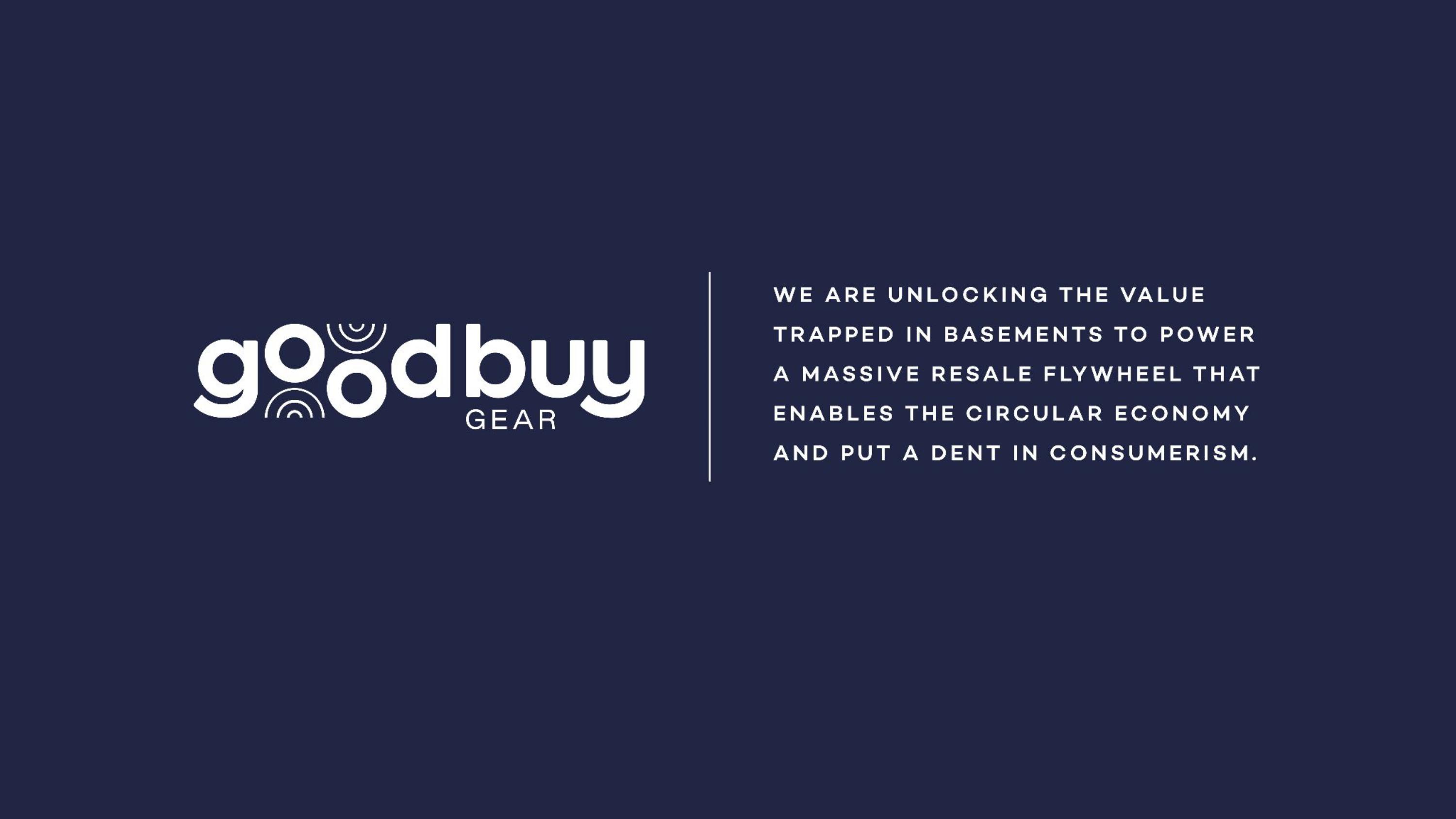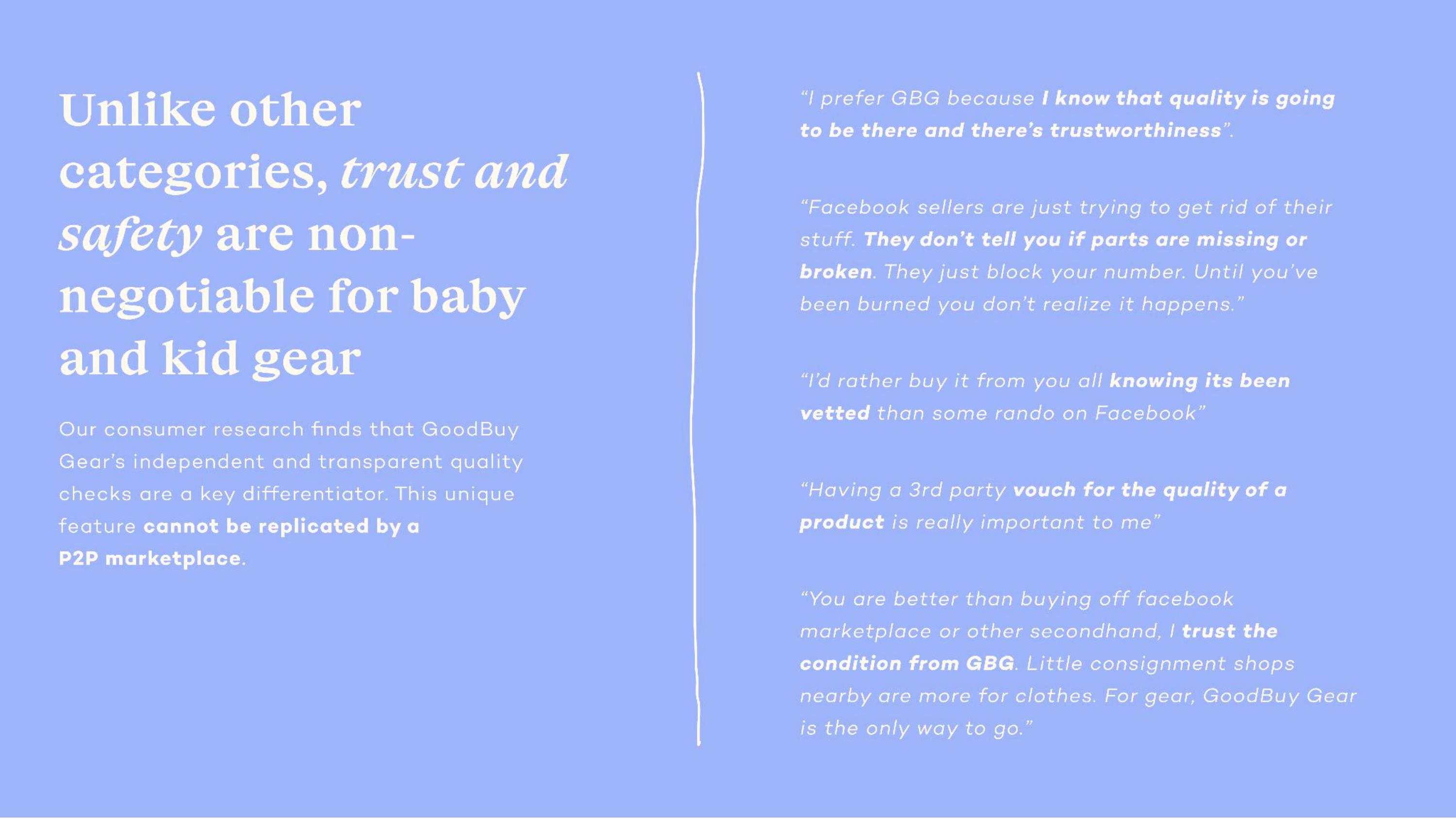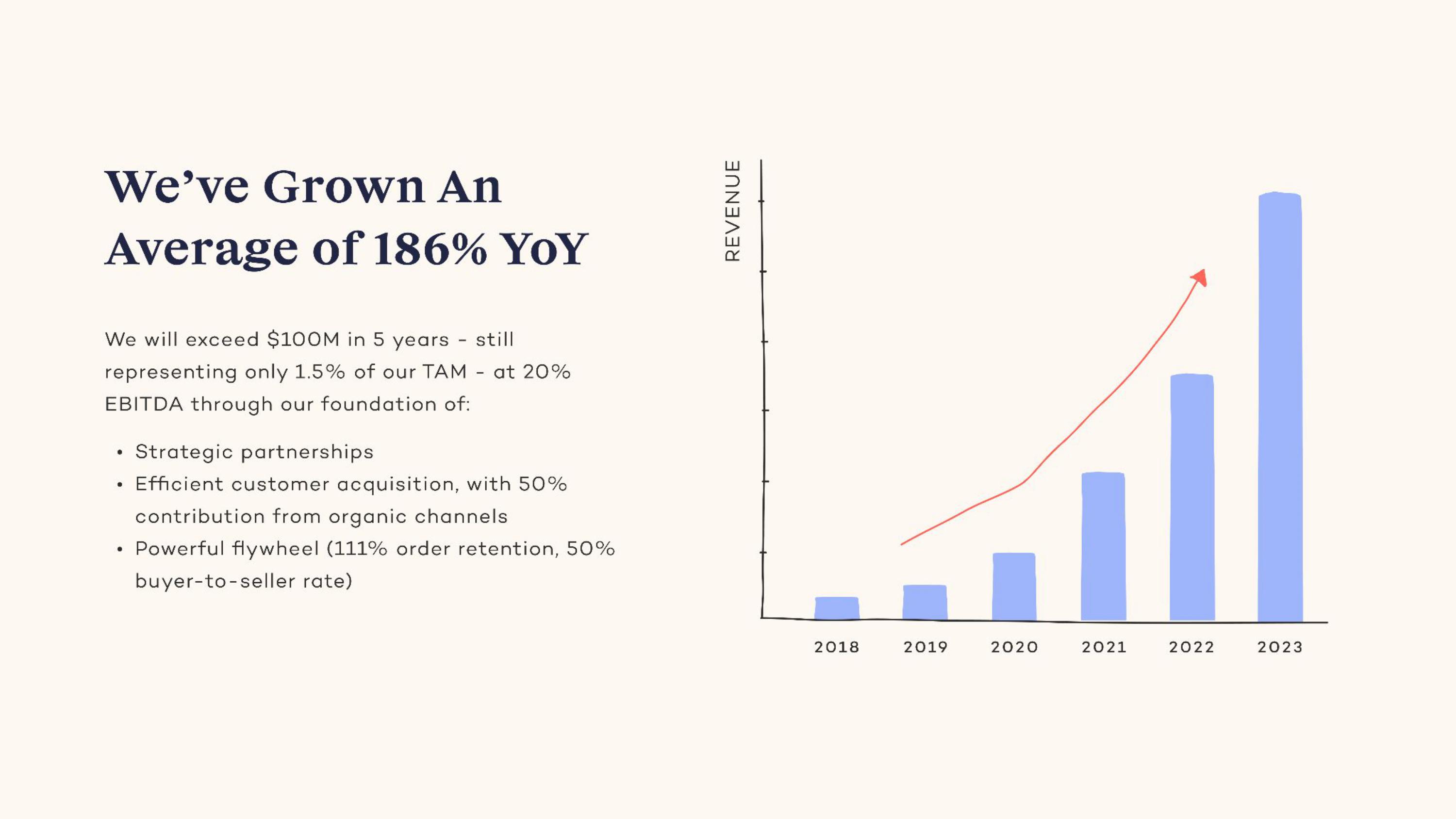Pitch Deck Teardown: GoodBuy Gear’s $11M Series A-1 deck
They grow up so fast. Babies, toddlers and kids will grow out of literally everything you get for them, probably well before it wears out. And then what do you do with the cots, car seats, strollers and toys?
That’s where GoodBuy Gear comes in: It’s like eBay, except for the little ones’ used stuff.
“Parents in the United States spend $87 billion on baby and kid gear every year, and most of those products are hardly used. In fact, 83% of the inventory on our marketplace is never or barely used before it’s listed for resale — that’s the massive opportunity GoodBuy Gear was founded to solve,” the company’s CEO and co-founder, Kristin Langenfeld, said in a press release.
The company raised a $6 million Series A in October 2020 and added a $11 million Series A-1 this May. The company also raised a $3 million line of debt, which puts the total funding secured at around $22.75 million.
For this Pitch Deck Teardown, we are looking at the deck the company used to raise its $11 million Series A-1.
We’re looking for more unique pitch decks to tear down, so if you want to submit your own, here’s how you can do that.
Slides in this deck
GoodBuy Gear raised the extension round with a 14-slide deck. The version we have has a lightly redacted slide outlining its unit economics (AOV, revenue, margins, etc.). Here are the slides:
- Cover slide
- Problem slide
- Problem slide 2
- Market interstitial slide
- Market slide
- Market differentiation slide
- Solution slide
- Traction slide
- Value proposition slide
- Market dynamic slide
- How it works slide
- Growth metrics slide
- Use of funds slide
- Closing + Mission slide
Three things to love
GoodBuy Gear’s deck is not without its challenges, but there’s a lot to love, including some unusual choices that really worked out for the team.
Closing on a high note
I’ve often argued that last impressions matter, and GoodBuy Gear’s closing slide does an elegant job:

[Slide 14] The world’s gentlest mic drop: That’s how you close a slide deck. Image Credits: GoodBuy Gear
A lot of pitch decks start with the mission, but GoodBuy Gear crashes straight into the story with its problem slide. I ain’t mad, because it works well.
I don’t think I’ve ever seen a pitch deck that ends with the mission, though. Anyway, it does a great job here, pulling the narrative together with a strong, “Hey, this is why we are here.”
Very cool, and well done.
Why not just use eBay?
When I first heard about this company, I was wondering why there was a market for this stuff at all. Clearly, I don’t have kids, because I should have seen this one coming. GoodBuy Gear tackles the question tastefully without even mentioning its competitors:

[Slide 6] Why not just use eBay? Well, it turns out there’s a good reason. Image Credits: GoodBuy Gear
Telling this part of the story with customer testimonials is smart — it gets the ‘why’ of the message across.
GoodBuy Gear’s business model is different from its peers: It vets the quality of the products and ensures that they are clean and of high quality. Busy parents don’t have time to deal with going to the post office, dealing with returns, so this service eradicates a lot of the hassle. Telling this part of the story through customer testimonials is smart. While I hate this white-on-light-blue wall of text, it does get the “why” of the message across.
The deck doesn’t go far into the “how,” which I think would have been beneficial for getting people fully onboard, but the company’s “How it works” page has a pretty decent explanation:

GoodBuy Gear’s “how it works” page on its website explains things better than the deck, tbh. Image Credits: GoodBuy Gear
Up and to the right
I usually don’t include redacted slides, but storytelling is storytelling, and GoodBuy Gear does a mighty fine job of explaining why it is doing well:

[Slide 12] Even without axis labels, this is a hell of a slide. Image Credits: GoodBuy Gear
The company paints a pretty rosy picture here: It’s trending toward $100 million revenue in five years and has clear growth trajectories, a healthy marketplace dynamic and exponential revenue growth.
It feels a little strange to show the 2023 figures, though. The company raised this extension round in May, which means it only had data for 40% of the year at most. It’s just good practice to show projected numbers in a different color than actual figures to highlight the difference.
Still, if the company can deliver on its projections, it’s on to something, and the investors agreed to the tune of a $5 million round.
In the rest of this teardown, we’ll look at three things GoodBuy Gear could have improved or done differently, along with its full pitch deck.
Three things that could be improved
The No. 1 thing that frustrates me about this deck isn’t what’s there — most of that is pretty good. It’s everything that’s been left out. Some of the omissions are straight-up suspicious and they’ll set off some pretty major alarm bells if you’re an investor.
The problem here is: The company raised a Series A in 2020 and has returned three years later to raise another series A, this time labeled as a Series A-1. As an investor, the first question out of my mouth would be, “So, what happened?” followed by, “How is it going to be different this time?”
Okay, I wouldn’t phrase it quite that rudely, but you’d better believe that investors are going to be curious.
